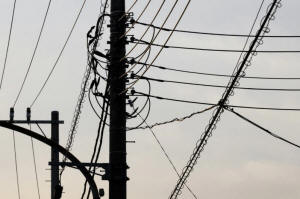|
Power output should grow from 1 trillion kilowatt-hours (kWh)
projected for the current decade to about 1.35-1.5 trillion kWh
in 2050 to meet demand as Japan sets up more data centers, chip
factories and other energy-consuming businesses, the government
said in a document published late on Monday.
The increase in demand would be the first in 20 years and
requires large-scale investments in power sources, the document
said.
Unless Japan increases renewable energy output, stable supply of
power could be uncertain, the government said, as it began
mapping out a new strategy on decarbonization and industrial
policy by 2040 which it plans to finalize by the end of March.
Japan, which relies heavily on the Middle East for fossil fuel
supplies, last year passed a law aimed at promoting
decarbonization investments totaling more than 150 trillion yen
($962 billion) in the public and private sectors over 10 years.
The country is counting on next-generation solar cells, known as
perovskite solar cells, floating offshore wind farms, restarts
of nuclear power plants and the introduction of next-generation
reactors to meet the demand, the paper showed.
(Reporting by Katya Golubkova; Editing by Chang-Ran Kim and
Sonali Paul)
[© 2024 Thomson Reuters. All rights
reserved.]
Copyright 2022 Reuters. All rights reserved. This material may
not be published, broadcast, rewritten or redistributed.
Thompson Reuters is solely responsible for this content.

|
|





